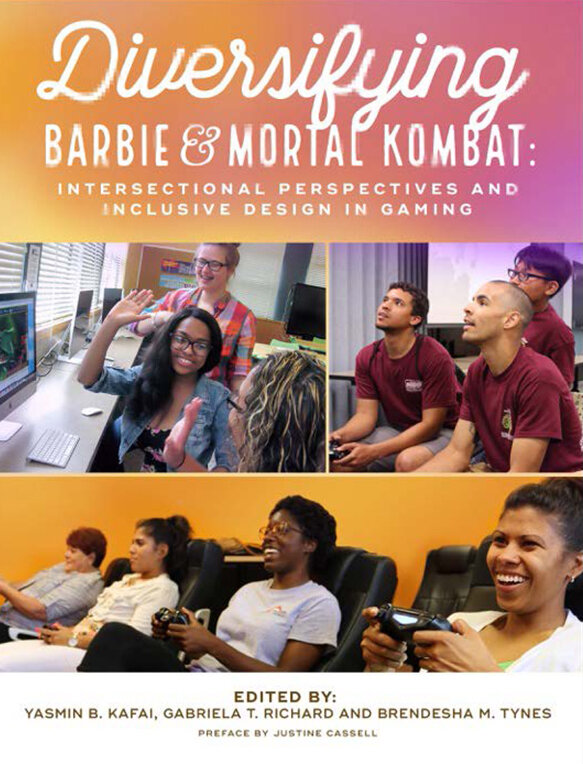Diversifying Barbie and Mortal Kombat: Intersectional Perspectives and Inclusive Designs in Gaming
ETC/CMU Press 2016
In Diversifying Barbie and Mortal Kombat, the third edited volume in the series that includes From Barbie to Mortal Kombat and Beyond Barbie and Mortal Kombat, we expand the discussions on gender, race, and sexuality in gaming. We include intersectional perspectives on the experiences of diverse players, non-players and designers and promote inclusive designs for broadening access and participation in gaming, design and development. Contributors from media studies, gender studies, game studies, educational design, learning sciences, computer science, and game development examine who plays, how they play, where and what they play, why they play (or choose not to play), and with whom they play. This volume further explores how we can diversify access, participation and design for more inclusive play and learning. The book is now available for free in PDF format.
Contributors
Mariam Asad, Kelly Bergstrom, Shana Bryant, Justine, Cassell, Florence Chee, Zoe Corwin, Katherine Cross, Robert Danielson, Suzanne de Castell, Jill Denner, Betsy DiSolvo, Mary Flanagan, Elisabeth Gee, Kishonna Gray, Jennifer Jenson, Yasmin Kafai, Geoff Kaufman, Gina Lepore, Heidi McDonald, Lisa Nakamura, Amanda Oschner, Celia Pearce, Gabriela T. Richard, Sarah Schoemann, Sinem Siyahhan, Constance Steinkueler, Brendesha Tynes, and Emma Westcott.
Endorsements
“This new volume opens up the contexts and constructions of identity in ways that allow us to better understand what it means and what it could mean to be a gamer, and to better design for all the glorious instantiations of gamers today and in the future.”
“Diversifying Barbie and Mortal Kombat, the third volume in a series on gender and games, makes a key contribution to feminist game studies scholarship in confirming the necessity of an intersectional approach. The contributors to this volume provide vital perspectives on not just players, games, and game culture, but also how to build better games and how to be more inclusive in academic, pedagogical, and outreach activities.”

